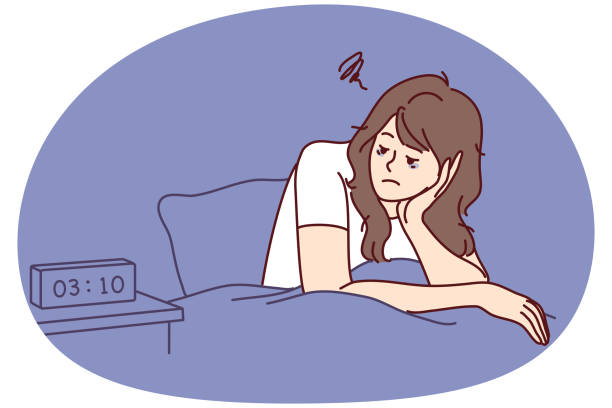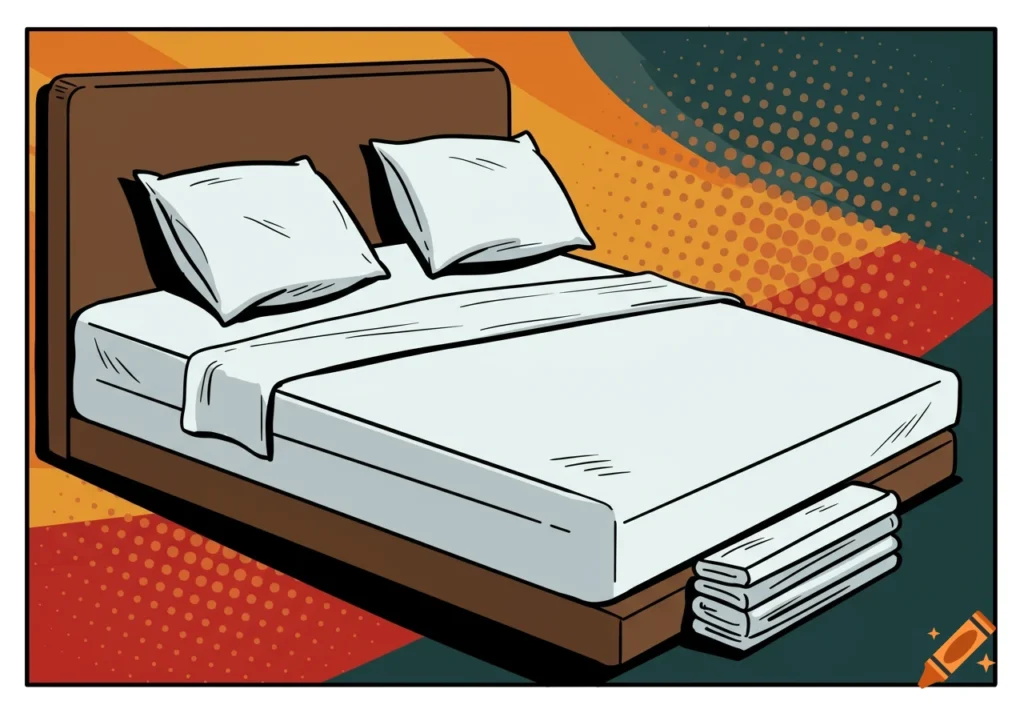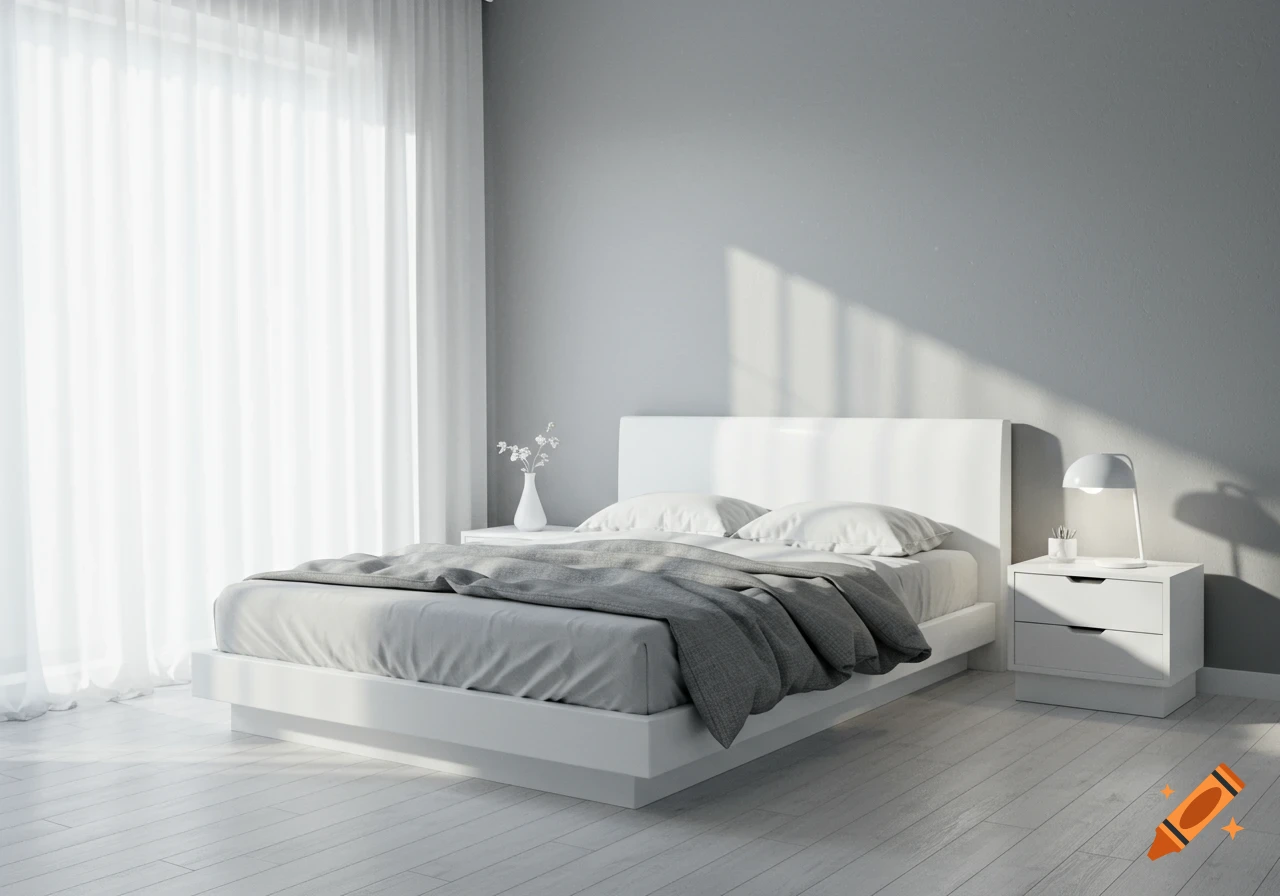Avoid Common Sleep Mistakes That Are Ruining Your Health

Sleep isn’t just a luxury—it’s the foundation of your health, mood, and productivity. Yet so many of us unknowingly sabotage our rest. From scrolling late into the night to skipping winding-down routines, small habits can snowball into major sleep disruptions.
The good news? Understanding what you’re doing wrong is the first step to turning it around. By identifying the common sleep mistakes that are affecting your nights, you can take actionable steps toward deep, restorative rest. Imagine waking up feeling refreshed, energized, and ready to tackle your day without relying on caffeine or naps.

In this guide, we’ll break down the top sleep pitfalls, explain why they’re harmful, and offer practical strategies to fix them. No complex gadgets or expensive treatments—just simple, science-backed habits that improve your sleep quality and overall health.
Ignoring Your Sleep Schedule
Many people think they can “catch up” on sleep during the weekend or sleep whenever they feel like it, but inconsistent sleep schedules wreak havoc on your body. Your internal clock, or circadian rhythm, relies on consistency to regulate hormones, alertness, and body temperature. Disrupting it can leave you groggy, stressed, and mentally foggy.
Let’s dive into why maintaining a regular sleep schedule is essential and how small adjustments can dramatically improve your nights and days.
Here’s how to Rewire

- The Science of Circadian Rhythms
- Weekend Sleep “Catch-Up” Myth
- Morning Light Exposure
- Evening Routine Importance
- Tracking Your Sleep Patterns
The Science of Circadian Rhythms
Your circadian rhythm is like a 24-hour timer for your body, controlling sleep-wake cycles, hormone production, and energy levels.
When you go to bed at varying times, this rhythm gets confused, which can delay melatonin release, increase stress hormone levels, and impair cognitive function.
Consistent sleep schedules train your brain to anticipate rest, making it easier to fall asleep and wake up refreshed without the need for alarms or stimulants.
Weekend Sleep “Catch-Up” Myth
Many people rely on sleeping in on weekends to make up for lost sleep during the week. While it may temporarily reduce fatigue, it disrupts your rhythm even further, making Monday mornings worse.
The body prefers smaller, consistent increments of rest rather than erratic bursts. The solution is maintaining a schedule as close to your weekday routine as possible, even on days off.
Morning Light Exposure
Exposing yourself to natural light in the morning helps reset your internal clock and boosts alertness.
Lack of morning light can confuse your circadian rhythm, leaving you groggy and less focused. A simple walk outdoors or opening your curtains immediately after waking can make a significant difference in regulating your sleep-wake cycle.
Evening Routine Importance
A consistent evening routine signals to your body that it’s time to wind down.
Activities like reading, gentle stretching, or meditation cue your brain for rest. Without this predictable pattern, your mind stays active, making it harder to fall asleep at the same time each night.
Tracking Your Sleep Patterns
Monitoring your sleep with journals or apps helps identify patterns and pinpoint inconsistencies. Awareness allows you to make incremental adjustments, like moving bedtime earlier or reducing late-night distractions.
Small changes compound into significant improvements in sleep quality and overall energy.

Prioritizing a consistent sleep schedule strengthens your body’s internal clock, improves mood, and enhances focus. Instead of relying on weekend “catch-ups,” stick to regular bed and wake times.
Small, deliberate adjustments to your routine can transform your sleep, energy, and long-term health.
Overstimulating Before Bed
Evening habits can make or break your sleep. Many of us underestimate how devices, caffeine, and late workouts keep our brains alert long after we intend to rest. Overstimulation delays sleep onset, reduces restorative deep sleep, and increases nighttime awakenings.
Understanding and controlling these triggers is essential for reclaiming deep, uninterrupted rest.
By making small but strategic adjustments to your pre-sleep activities, you can dramatically improve your nightly recovery and daytime energy.
Small tweaks For a better state

- The Screen Effect
- Late-Night Caffeine
- Heavy Evening Workouts
- Emotional Overstimulation
- Creating a Sleep-Friendly Environment
The Screen Effect
Phones, tablets, and TVs emit blue light, which suppresses melatonin—the hormone that signals your body it’s time to sleep.
Prolonged exposure before bed can delay sleep by an hour or more, reduce deep sleep, and leave you groggy in the morning. Limiting screen use an hour before bed or using blue-light filters significantly improves sleep quality.
Late-Night Caffeine
Caffeine can stay in your system for 6–8 hours, making it harder to fall asleep and decreasing total sleep time.
Even tea, chocolate, and energy drinks can interfere with your rest. Avoid consuming caffeine in the late afternoon or evening to allow your body’s natural sleep drive to take over.
Heavy Evening Workouts
Exercise is essential for good sleep, but intense workouts too close to bedtime elevate adrenaline, heart rate, and body temperature, all of which can delay sleep.
If you prefer evening exercise, keep it light—like yoga, walking, or stretching—to help your body wind down naturally.
Emotional Overstimulation
Late-night stressors, such as work emails, arguments, or intense gaming, can keep your mind active and anxious, making it nearly impossible to relax.
Creating a mental shutdown routine—like journaling or deep-breathing exercises—signals your brain it’s time to rest.
Creating a Sleep-Friendly Environment
Even with perfect habits, your environment affects sleep quality. Dim lighting, quiet rooms, and a cool temperature cue your body for sleep.
Aromatherapy or white noise can further enhance relaxation. By controlling external stimuli, you reduce awakenings and deepen restorative sleep.

Evening overstimulation is a major sleep saboteur. Managing light exposure, caffeine intake, exercise timing, and emotional triggers ensures your body can relax naturally.
Optimizing your environment and routines allows you to fall asleep faster, stay asleep longer, and wake up feeling truly refreshed.
Neglecting Sleep Hygiene
Sleep hygiene is a collection of habits and environmental factors that influence how well you rest. Many overlook it, assuming a clean bedroom is enough. Poor sleep hygiene—like a subpar mattress, irregular routines, or noisy surroundings—reduces sleep quality and increases daytime fatigue.
By focusing on key elements of sleep hygiene, you can create an environment and routine that maximizes rest, leaving you energized and healthy.
Proven ways to Improve sleep hygiene

- Mattress and Pillow Quality
- Bedroom Temperature
- Noise Control
- Consistent Bedtime Rituals
- Avoiding Bed for Work or TV
Mattress and Pillow Quality
An uncomfortable mattress or pillow causes tossing, turning, and aches, disrupting sleep cycles. Investing in supportive bedding improves spinal alignment, reduces pressure points, and promotes uninterrupted rest.
Even small upgrades can significantly enhance sleep quality and prevent long-term discomfort.
Bedroom Temperature
Body temperature naturally drops during sleep. Rooms that are too warm or cold interfere with this process, leading to difficulty falling asleep or staying asleep.
Aim for a bedroom around 65°F (18°C) and use blankets or ventilation to maintain comfort.
Noise Control
Noisy environments increase awakenings and reduce deep sleep stages. Using earplugs, white noise machines, or calming background sounds helps mask disturbances, allowing uninterrupted cycles of restorative sleep.
Even subtle noise disruptions can affect memory consolidation and mood.
Consistent Bedtime Rituals
Bedtime rituals like reading, meditation, or gentle stretches help your body recognize sleep cues.
These predictable activities reduce stress, lower heart rate, and trigger melatonin production, making it easier to fall asleep and wake up refreshed.
Avoiding Bed for Work or TV
Using your bed for work or entertainment confuses your brain, weakening the association between bed and sleep.
Reserve your bed strictly for rest to strengthen the mental connection, helping you fall asleep faster and sleep more deeply.

Sleep hygiene forms the foundation of restorative rest. Optimizing your bedroom environment, maintaining consistent rituals, and avoiding disruptive activities in bed significantly enhance sleep quality.
By making deliberate choices, you support deeper sleep, improved mood, and long-term health, turning your bedroom into a true sanctuary for rest.
Fix Common Sleep Mistakes for Better Health
Addressing common sleep mistakes transforms more than just your nights—it impacts your energy, focus, and long-term health. Start by establishing a consistent schedule, reducing evening stimulation, and improving your sleep environment. These adjustments may seem small, but their effects are profound.
The key is consistency. Daily habits shape your sleep quality, and even incremental improvements compound over time. Track your sleep, notice patterns, and celebrate small wins. Restful nights lead to more productive, energized days and enhanced well-being.
Take control today. Replace late-night scrolling with relaxing routines, create a sleep-friendly bedroom, and honor your body’s natural rhythm. By addressing these common sleep mistakes, you’re investing in your health, mood, and overall well-being—because better sleep equals a better life.
